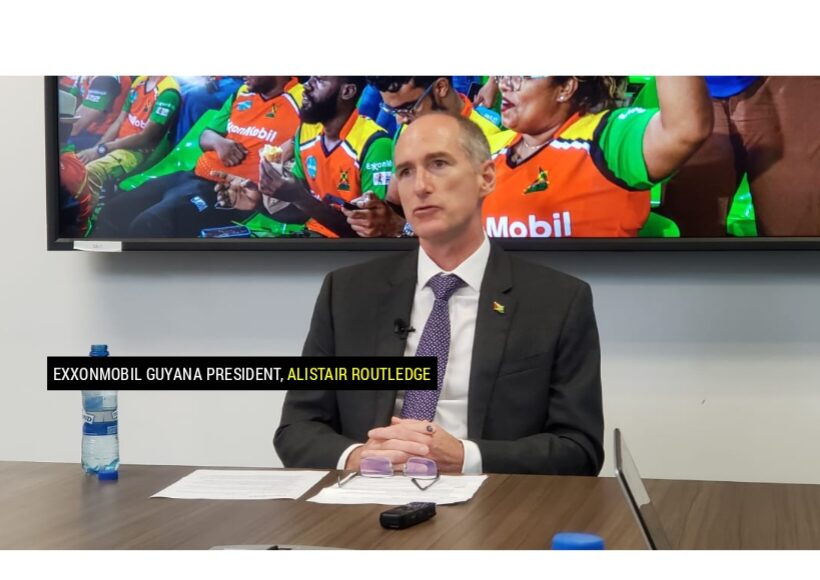By Abena Rockliffe
If the Government of Guyana wants ExxonMobil to fully commit to an investment in one or more of the 14 blocks up for auction, it will have to make quite a few changes to its model Production Sharing Agreement (PSA). As articulated this morning by ExxonMobil Guyana President, Alistair Routledge, ExxonMobil is firm that it will not sign on to the new PSA as it stands. He made this known at a press conference hosted at Exxon’s Duke Street Office.
According to Routledge, Exxon’s confliction with the PSA has little to do with the fiscal regime. In fact, the company President said that it is “quite normal” for a country to try to increase its take after a basin has been de-risked.
“When you go to bid rounds after having discoveries in the basin, the basin becomes more attractive. It is quite normal for the fiscal take to be more favorable to the country because now there is less risk,” Routledge said.
Instead, Exxon is more worried about the punitive measures outlined in the new PSA; the time period set for aggressive work programmes and the increased red tapes.
Routledge told the media that Exxon provide significant feedback during the consultation process about its concerns and went a step further to include its concerns within its bid proposal.
He told the media “There are lots of measures (that are not favorable, including) the time periods for relinquishment. Can you really, in deep or shallow water, move that quickly to acquire data, process data, make decisions about the next phase? It (the time set out in the PSA) is extremely short, unusually short.”
Routledge said that other players in the industry commented about the amount of control given to the Minister of Natural Resources. He added, “There are a lot of approvals required under the new PSA that, quite honestly, I do not think the ministry is set up to process, review and generally exercise those functions even if they were the right authority to do that.”
The company President said that the weight of the approvals required and the amount of oversight does not balance well with the expectation of the operator to execute an aggressive work programme.
Given the mountain of concerns, Routledge said, “We gave feedback on the PSA and said we would not sign it as it stands.”
The government of Guyana has said that it was committed to establishing a model PSA that is guided by industry standards and best practices, aimed at maximizing the socioeconomic benefit for the nation without disincentivizing foreign investment in the oil and gas sector.
Questioned before on the matter, Vice President Bharrat Jagdeo said that the government is amenable to making changes to the PSA based on feedback of perspective operators. He said however that the fiscal regime will not be touched.













